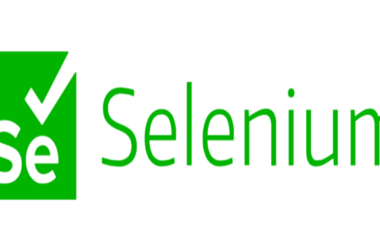Common Causes of Fuel Spills
Fuel spills can happen in various situations, often as a result of preventable factors. Understanding the causes can help mitigate the risk of spills in the future. Below are three of the most common reasons for fuel spills.
1. Equipment Failure
Equipment failure is one of the primary causes of fuel spills, especially in industries that rely heavily on machinery. Common equipment-related issues include:
- Leaking Storage Tanks: Over time, storage tanks may corrode or develop cracks, allowing fuel to seep out. Regular inspections and maintenance can help identify potential issues before they lead to spills.
- Faulty Hoses and Valves: Improperly maintained hoses and valves used for transferring fuel can break, leading to leaks.
- Overfilled Tanks: Fuel tanks that are overfilled during refueling can spill excess fuel onto the ground, creating a hazardous situation.
Preventative maintenance is essential to reduce the risk of equipment-related spills. Regular inspections are conducted, and worn components are replaced to ensure the safe operation of machinery and storage systems.
2. Human Error
Human error is another significant contributor to fuel spills. Mistakes made during transportation, handling, or fuel storage can result in accidents. Common scenarios include:
- Spillage During Refueling: Improper refueling techniques can lead to accidental overflows.
- Transportation Accidents: Mishandling fuel during transit, such as failing to secure containers properly, can cause leaks.
- Mismanagement in Industrial Processes: In industries where fuel is a critical resource, employees may inadvertently mishandle fuel, leading to spills.
Providing adequate training for employees who handle fuel and implementing strict safety protocols can greatly reduce the likelihood of human error.
3. Vehicle Accidents
Vehicle accidents, especially those involving fuel-carrying trucks or machinery, can result in major spills. For example:
- Tanker Truck Collisions: These accidents can lead to large amounts of fuel spilling onto roads or into the environment.
- Heavy Machinery Accidents: On construction sites or industrial areas, heavy machinery accidents may cause fuel leaks.
Ensuring that vehicles carrying fuel meet safety standards and that drivers are trained to operate them responsibly can help minimize the risks of spills caused by accidents.
Ensuring Area Safety After a Fuel Spill
When a fuel spill occurs, ensuring the safety of people and the environment is the priority. Immediate action can prevent further damage and mitigate risks. Here are key steps to secure the area:
1. Evacuate the Area
Fuel spills can release toxic fumes and pose fire hazards. Evacuating the area ensures that people are not exposed to harmful substances or placed in danger. Ensure everyone, including workers and bystanders, is moved to a safe distance.
2. Contain the Spill
Containing the spill is crucial to prevent it from spreading. Use tools and materials such as:
- Spill Containment Kits: These typically include absorbent pads, booms, and other materials designed to contain and absorb fuel.
- Sand or Soil: In emergencies where spill kits are unavailable, sand or soil can act as a temporary barrier.
- Barriers or Dikes: Create barriers to prevent the spill from reaching nearby waterways or sensitive areas.
Proper containment can help minimize environmental contamination and reduce cleanup time.
3. Turn Off Ignition Sources
Fuel vapors are highly flammable. To avoid fires or explosions, ensure that all ignition sources, such as running machinery, vehicles, and open flames, are turned off immediately.
4. Notify Authorities
Depending on the severity of the spill, local environmental or emergency services may need to be notified. They can provide guidance on managing the situation and may offer resources to assist with cleanup. Reporting significant spills promptly is also often a legal requirement.
5. Wear Protective Gear
If you must be near the spill to contain or assess it, ensure you wear appropriate protective gear, such as gloves, boots, and respirators. This helps reduce exposure to harmful substances and ensures personal safety.
Why You Should Seek Professional Cleanup Services
While immediate safety measures are essential, professional cleanup services are critical for effectively resolving fuel spills. Here’s why you should always rely on experts:
1. Compliance with Environmental Regulations
Fuel spills are subject to strict environmental laws and regulations. Failure to comply with these regulations can result in hefty fines and legal issues. Professional cleanup teams are well-versed in these laws and ensure that all cleanup activities adhere to local, state, and federal requirements.
2. Specialized Equipment and Expertise
Cleaning up a fuel spill requires specialized tools and knowledge. Professionals have access to:
- Advanced Cleanup Technologies: Equipment such as vacuum trucks, skimmers, and chemical dispersants.
- Expert Knowledge: Teams trained in handling hazardous materials safely and effectively.
Without proper tools and expertise, cleanup efforts may be ineffective or even worsen the situation.
3. Environmental Protection
Fuel spills can have devastating environmental consequences, contaminating soil, water, and air. Professional remediation services ensure that:
- Contaminated Materials are Properly Disposed: Professionals use approved methods to dispose of fuel and contaminated soil or water.
- Restoration is Comprehensive: Cleanup includes measures to restore the affected area to its original condition as much as possible.
4. Risk Mitigation
Handling a fuel spill without professional assistance can pose significant risks, including exposure to toxic fumes and potential fires. Trained professionals understand these risks and are equipped to manage them safely.
5. Cost-Effectiveness in the Long Run
While hiring professionals may seem costly upfront, it is often more cost-effective in the long term. Improper cleanup can lead to:
- Prolonged Environmental Damage: This may require more extensive (and expensive) remediation later.
- Fines or Legal Penalties: For non-compliance with environmental regulations.
By hiring professionals, you ensure a thorough cleanup that minimizes long-term costs and liabilities.
Choose Professional Services for Effective Cleanup
Fuel spills require immediate and expert action to ensure safety and prevent environmental harm. For reliable and efficient solutions, consider Commercial NDS’s oil spill remediation services. Their team of experts specializes in addressing fuel spills with precision and care, ensuring compliance with environmental standards and thorough remediation.
By understanding the causes of fuel spills, taking the right safety measures, and seeking professional help, you can effectively mitigate the risks and ensure a safer, cleaner environment. Protecting people and the planet starts with responsible action, and professional cleanup services are a critical part of that process.








